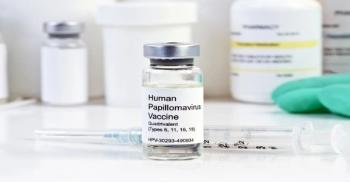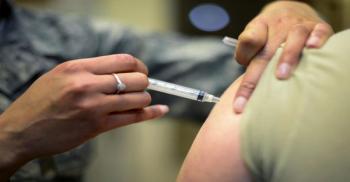
Universal meningococcal B vaccines not cost-effective
While many meningococcal B vaccines strike college campuses, the threat of the disease is too low and the cost of the vaccine too high to warrant universal vaccination, according to a new report.
When meningococcal type B outbreaks occur-many times on college campuses-there is often a knee-jerk reaction call for vaccination. Yet a new study suggests that routine vaccination may not be necessary or cost-effective.
The study, published in
“From a societal health perspective, universal vaccination for meningococcal type B of all college students is not cost-effective,” said Ira Leeds, MD, MBA, ScM, a surgical resident and researcher at Johns Hopkins University and lead author of the report. “The likelihood of contracting meningococcal B disease is too low given the relatively high cost of the vaccine.”
Young children and individuals aged 16 to 23 are at the highest risk of contracting a meningococcal infection,
This new study sought to assess the risk of disease and whether a routine vaccination would be beneficial. Leeds said researchers found that the hype over the disease appears worse than the disease itself.
“Although news stories often sensationalize every case of meningococcal B on college campuses, individual college students are at extremely low risk of being exposed or infected with meningococcal B,” Leeds said. “Those that are infected may be hospitalized, but even then typically have good long-term recoveries.”
Researchers investigated the cost and benefit of universal meningococcal B vaccination at college entry using data from a mid-sized four-year college in 2018. The study investigated costs from both the health and societal perspectives.
According to the report, the cost per quality-adjusted life year of universal vaccination was $13.9 million under the health perspective and $13.8 million under the societal perspective. Each perspective was compared with a willingness-to-pay threshold of $150,000 per quality-adjusted life year, the report notes. Researchers determined that universal vaccination would only be cost-effective for a vaccine series costing $65 or less-but the meningococcal B vaccine is around $350 for the series according to AAFP estimates.
Leeds said there was already a hypothesis that universal vaccination for meningococcal B was not cost-effective, but he was surprised by how much it overshot the cost-effective mark.
“There had already been some presumption that MenB vaccination was not as cost-effective as other vaccines that are cheaper to produce,” Leeds said. “However, the degree to which this vaccine failed cost-effectiveness testing was surprising. Under 10,000 practical scenarios during sensitivity testing was vaccination cost-effective.”
Still for individuals who are particularly concerned about the risk of contracting meningococcal B, Leeds notes that the cost of the vaccine is not really prohibitive, either.
“For an individual with a risk-averse preference set, the vaccine-approximately $330-may be priced low enough to allow real risk plus psychological anxiety of being unprotected during their college years,” Leeds said.
Overall, Leeds said the study demonstrates that while the vaccine is useful, the risk of contracting the disease is not high really enough to warrant the cost of universal vaccination.
“While we support individuals deciding on personal vaccination strategies, this study strongly questions whether institutional practices that involve universal MenB vaccination efforts are achieving their communal goals,” Leeds said.
Newsletter
Stay informed and empowered with Medical Economics enewsletter, delivering expert insights, financial strategies, practice management tips and technology trends — tailored for today’s physicians.






